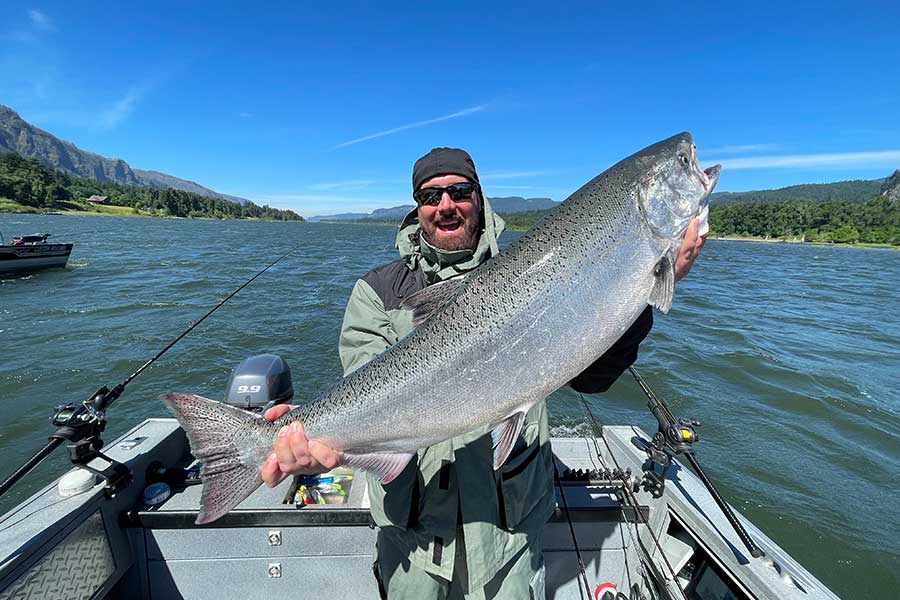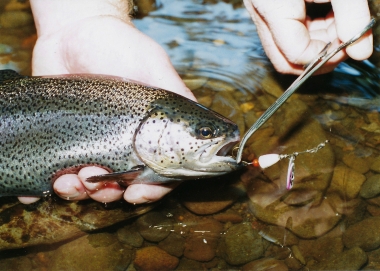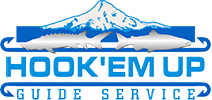Conservation and Compliance: Understanding the Fishing Regulations in Portland
Portland, Oregon, renowned for its natural beauty and diverse aquatic ecosystems, offers anglers a plethora of fishing opportunities. However, ensuring the sustainability of these ecosystems demands adherence to fishing regulations and conservation practices. Understanding and complying with the established fishing regulations is crucial to preserving the region’s aquatic habitats and maintaining healthy fish populations.
Importance of Fishing Regulations in Portland

Fishing regulations are not arbitrary rules but are meticulously crafted measures designed to conserve fish populations, protect sensitive habitats, and sustain the ecosystem’s balance. In Portland, these regulations are formulated by state authorities, such as the Oregon Department of Fish and Wildlife (ODFW), in collaboration with scientific experts, conservationists, and input from the public.
Conservation Goals
Portland’s fishing regulations aim to achieve several conservation objectives:
- Preserving Fish Populations: The regulations are structured to prevent overfishing, ensuring that fish populations remain at sustainable levels. Implementing catch limits and size restrictions helps maintain healthy fish stocks.
- Protecting Habitat: Rules governing fishing areas, seasons, and gear types protect sensitive habitats like spawning grounds and essential breeding areas. These measures minimize habitat disturbance, safeguarding the environment crucial for fish reproduction.
- Preservation of Native Species: Specific regulations focus on safeguarding native fish species, such as salmon, trout, and steelhead. Measures like selective gear rules aim to minimize unintended harm to these vital native populations.
Understanding Fishing Regulations in Portland

- Seasons and Closures: Fishing seasons and closures are set to coincide with the life cycles of various species. These regulations protect fish during critical spawning periods, ensuring their successful reproduction.
- Catch Limits and Size Restrictions: Catch limits dictate the number of fish an angler can harvest per day or season. Size restrictions ensure that fish have the opportunity to mature and spawn before being harvested.
- Gear Restrictions: Regulations regarding gear types, such as the use of barbless hooks or selective fishing methods, reduce bycatch and unintentional harm to non-target species.
- Protected Areas: Designated marine reserves, conservation areas, or no-fishing zones help safeguard sensitive habitats and protect biodiversity.
Compliance and Enforcement

Compliance with fishing regulations is a shared responsibility between anglers, charter services, and enforcement agencies. Anglers are expected to familiarize themselves with the rules, carry necessary licenses, and adhere to catch limits and gear restrictions. Charter services play a pivotal role in educating clients about regulations and ensuring compliance during fishing excursions.
- Enforcement Agencies: Agencies like the ODFW, alongside federal bodies and local law enforcement, monitor compliance. Conservation officers patrol waterways, check fishing licenses, and enforce regulations to maintain adherence and protect the ecosystem.
- Partnerships and Collaborations: Conservation is a collective effort involving various stakeholders, including government agencies, conservation organizations, anglers, and local communities. Collaborative initiatives ensure a holistic approach to conservation.
- Education and Outreach: Agencies conduct educational campaigns to raise awareness about the importance of conservation and compliance. Outreach programs target schools, communities, and anglers to instill conservation values.
- Scientific Research: Ongoing scientific studies aid in understanding fish populations, habitats, and the impacts of fishing activities. Research findings contribute to informed decision-making in implementing regulations.
Common Fishing Regulations in Portland

- Salmon and Steelhead Regulations: Regulations for salmon and steelhead often include seasonal closures, catch limits, and gear restrictions. These regulations are crucial due to the importance of these species in the region.
- Trout Fishing Regulations: Rules governing trout fishing may include catch-and-release zones, gear restrictions, and specific size limits to maintain healthy trout populations.
- Rockfish and Lingcod Regulations: Conservation measures for bottom-dwelling species often involve depth restrictions, bag limits, and the use of descending devices to prevent barotrauma when releasing fish.
- Shellfish Harvesting: Regulations for clamming, crabbing, and other shellfish harvesting often involve season-specific closures, size limits, and daily catch restrictions to sustainably manage these resources.
Tips for Anglers to Ensure Compliance

- Stay Informed: Regularly check the latest fishing regulations from official sources like the ODFW website or local fishing authorities. Regulations can change seasonally or annually.
- Get Licensed: Ensure you possess the appropriate fishing licenses and permits required for the specific water bodies and species you intend to target.
- Responsible Fishing Practices: Practice catch-and-release methods where applicable, handle fish with care, and use proper gear to minimize harm to fish and their habitats.
- Follow Limits and Size Restrictions: Adhere strictly to catch limits and size restrictions to ensure the sustainability of fish populations.
- Report Violations: Report any observed violations of fishing regulations to the relevant authorities. Cooperation helps maintain the integrity of the ecosystem.
- Understanding Local Regulations: Besides state regulations, some areas within Portland might have specific rules or additional restrictions. Familiarize yourself with these location-specific regulations to avoid unintentional violations.
- Proper Disposal of Fishing Waste: Dispose of fishing-related waste responsibly, including lines, hooks, and bait containers. Improperly discarded fishing gear can harm wildlife and damage habitats.
- Educate Fellow Anglers: Share knowledge about fishing regulations and conservation practices with fellow anglers. Promoting awareness among the fishing community contributes to a collective commitment to conservation.
- Continuous Learning: Stay updated on the latest conservation practices and changes in regulations. Attend workshops or seminars organized by local agencies to enhance your understanding of responsible angling practices.
- Community Engagement: Authorities often encourage public input in the regulation-making process. Participating in public meetings or providing feedback on proposed regulations enables anglers to contribute to the development of conservation measures.
- Adaptability to Changes: Environmental conditions and fish populations can fluctuate. Regulations might evolve to adapt to these changes. Anglers should embrace and comply with new regulations aimed at ensuring the sustainability of fisheries.
- Voluntary Conservation Efforts: Engage in voluntary conservation initiatives or programs organized by conservation groups or governmental agencies. Participation in habitat restoration projects or community-based conservation efforts showcases a commitment to environmental stewardship.
Wrapping It Up
Preserving Portland’s aquatic ecosystems and ensuring the longevity of its fisheries rely heavily on effective conservation measures and adherence to fishing regulations. By comprehending and complying with these regulations, anglers contribute significantly to the sustainability of fish populations and the preservation of natural habitats. Conservation and compliance efforts safeguard the beauty and diversity of Portland’s fishing destinations for generations to come.
Book your next chartered trip with us now and have a great time on the waters!
